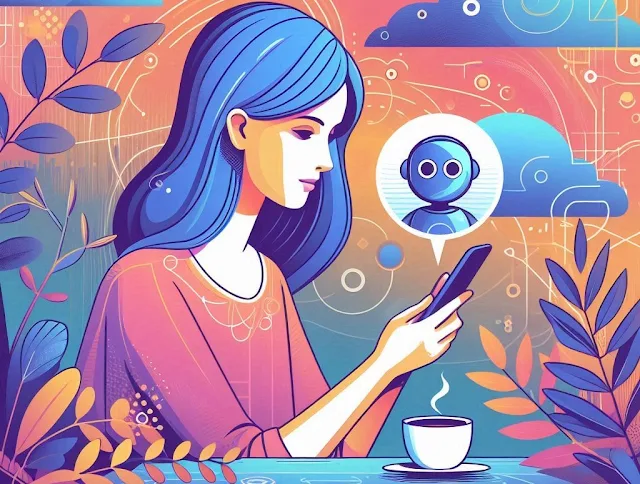A woman named Bethany Crystal, a writer for Hard Mode First shared how ChatGPT could be used for medical diagnosis because she used it for hers. She went to the doctor because she was feeling unwell but the doctors didn't find anything wrong with her after a general checkup. They sent her home with a diet recommendation but she could feel that something was wrong with her. One night, she used ChatGPT for some diet advice and the next day she spotted some tiny red spots on her leg. She shared the images of those spots with the AI model and ChatGPT suggested her dietary changes that could be the cure for it.
She was still feeling unwell so Bethany told ChatGPT her blood work results and ChatGPT warned her about her platelet count being dangerously low, and asked her to go to the ER immediately. At first, she dismissed it but then decided to go because no one had reviewed her blood work results yet. When she messaged her doctor, she got a response that they would get back to her in two days, but the red spots were spreading. ChatGPT asked her to seek medical help urgently and provided a step-by-step instruction about things she has to explain to the doctor so they can understand her condition.
Bethany Crystal said that ChatGPT simplified complex medical terms for her so she understood her condition well. ChatGPT saved her life because when she went to the hospital, she was diagnosed with an extremely low platelet count, which was a dangerous and rare condition. When doctors asked what made her come to the ER, she told them how she had used ChatGPT. Bethany also used ChatGPT to understand different procedures to her. She was taking help from ChatGPT at every step of her recovery and she didn't have to ask doctors to explain everything to her and that made her feel informed and at ease.
While ChatGPT helped Bethany, it’s important to remember that AI isn’t a doctor with practical experience. It can simplify medical jargon, highlight concerns, and offer insights, but it doesn’t replace professional medical advice. AI models don’t have full patient context, and relying on them alone can be risky. If something feels off, always cross-check with a real expert doctor. ChatGPT is a tool—useful, but not infallible.
Image: DIW-Aigen
Read next:
• New Report Confirms Nearly All Undergraduate Students are Using AI
• Instagram Beats Facebook in Q1 2025 as Brands’ Preferred Platform for Marketing
• Influencers Are Instilling Fear On Social Media to Promote Controversial Medical Tests, New Study Claims
She was still feeling unwell so Bethany told ChatGPT her blood work results and ChatGPT warned her about her platelet count being dangerously low, and asked her to go to the ER immediately. At first, she dismissed it but then decided to go because no one had reviewed her blood work results yet. When she messaged her doctor, she got a response that they would get back to her in two days, but the red spots were spreading. ChatGPT asked her to seek medical help urgently and provided a step-by-step instruction about things she has to explain to the doctor so they can understand her condition.
Bethany Crystal said that ChatGPT simplified complex medical terms for her so she understood her condition well. ChatGPT saved her life because when she went to the hospital, she was diagnosed with an extremely low platelet count, which was a dangerous and rare condition. When doctors asked what made her come to the ER, she told them how she had used ChatGPT. Bethany also used ChatGPT to understand different procedures to her. She was taking help from ChatGPT at every step of her recovery and she didn't have to ask doctors to explain everything to her and that made her feel informed and at ease.
While ChatGPT helped Bethany, it’s important to remember that AI isn’t a doctor with practical experience. It can simplify medical jargon, highlight concerns, and offer insights, but it doesn’t replace professional medical advice. AI models don’t have full patient context, and relying on them alone can be risky. If something feels off, always cross-check with a real expert doctor. ChatGPT is a tool—useful, but not infallible.
Image: DIW-Aigen
Read next:
• New Report Confirms Nearly All Undergraduate Students are Using AI
• Instagram Beats Facebook in Q1 2025 as Brands’ Preferred Platform for Marketing
• Influencers Are Instilling Fear On Social Media to Promote Controversial Medical Tests, New Study Claims

